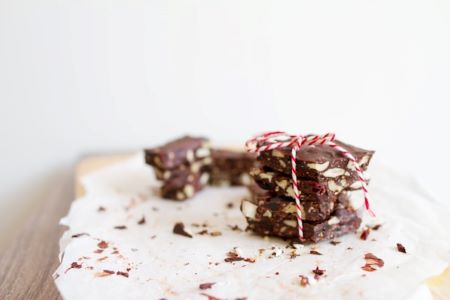Do you really need to be gluten free with Hashimoto’s?
I’m often asked if just a little gluten here and there is ok when you have Hashimoto’s.

I’m going to be straight up with you here, no sugar coating things!
No!
Even a tiny amount of gluten can tip the scales and it can last much longer than you anticipated.
Here’s what happens when gluten is eaten:
Gluten increases levels of something in your digestive tract called zonulin (1).
Zonulin when increased affects the tight junctions between the cells in your gut wall. The tight junctions act like gates keeping food and bacteria, etc in the gut and out of the rest of your system.
These tight junctions open more when zonulin increases (2). This increases intestinal permeability and allows food, bacteria, etc to pass into the blood stream.
Once in the blood stream your immune system treats them as foreign as they shouldn’t be there and tags them. They’re then taken to your liver to be processed and eliminated.
Increased levels of zonulin and intestinal permeability have been found in those with Hashimoto’s thryoiditis (2).
This process can result in the auto-immune response being triggered, in molecular mimicry and in chronic inflammation (2).
Gliadin contained within gluten is similar in structure to transglutaminase, this enzyme is abundant in the thyroid.
The immune system can attack transglutaminase as well as gliadin and cause continuing damage to the thyroid, a process known as molecular mimicry (3).
So what are the consequences?
The chronic inflammation, auto-immune response and the molecular mimicry take much longer to calm than it takes for symptoms to disappear.
So even after a little gluten, some may have no symptoms others may be severely ill for days.
However, whether you have symptoms or not this process is still going on in the background, driving the auto-immune attack on the thyroid and causing systemic inflammation.
So stopping gluten will stop the auto-immune attack?
For some the answer is that simple!
For others there are other factors at play too which need to be addressed. Either way removing gluten will be beneficial, even if you don’t feel it.
Other than removing gluten what other dietary interventions can help calm the auto-immune attack?
Gut dysbiosis can also trigger increased levels of zonulin (2).
So addressing gut health is critical. You need to look at what you are and what you aren’t eating!
Inflammatory foods that can lead to dysbiosis need to be eliminated, ie sugar, refined carbs (many of which contain gluten) and processed foods.
Processed foods themselves have also been shown to increase intestinal permeability increasing the auto-immune response (4).
Sugar and sweeteners can both alter glucose homeostasis and change gut microbiota composition (5).
A continued dysregulation in blood sugar can increase inflammation due to continued raised cortisol levels. Inflammation is a major driver of autoimmune disease so needs to be controlled wherever possible.
Focus on real foods that your good gut bacteria love such as fibre, ie vegetables, fruit, nuts, seeds, beans, pulses, pseudo grains and naturally gluten free wholegrains.
Is there anything else other than diet that can help?
Absolutely!
Stress has a profound effect on digestion, especially if it becomes chronic.
Stress reduces blood supply to the digestive tract, limits the release of digestive enzymes, bile, stomach acid and other digestive secretions, resulting in poor absorption of nutrients (6).
But it also slows motility, leads to intestinal permeability, slows repair of the digestive tract and upsets the delicate balance of the microbiome as well as up-regulating the release of mast cells and inflammatory cytokines (7).
So stress can be a major driver in the auto-immune process if it is out of control or even low grade but constant!
Introducing stress management techniques can be hugely beneficial in getting control of your Hashimoto’s, yet it’s an area that is often overlooked in favour of dietary interventions alone!
Need a little help getting things back under control?
No problem, I’m happy to help.
You can drop me a message at helen@helenmallaburn.com
Want to find out a bit more about me, what I do and how I can help you recover your health with Hashimoto’s?
Then head over to my website!
Or book a free 30 minute Hashimoto’s Health Discovery call Here!
References
- https://www.ncbi.nlm.nih.gov/pmc/articles/PMC7973118/
- https://www.ncbi.nlm.nih.gov/pmc/articles/PMC6996528/
- https://juniperpublishers.com/jojph/pdf/JOJPH.MS.ID.555563.pdf
- https://www.sciencedirect.com/science/article/pii/S1568997215000245
- https://pubmed.ncbi.nlm.nih.gov/29159583/
- https://www.researchgate.net/publication/13792211_Gut_Permeability_Intestinal_Morphology_and_Nutritional_Depletion
- https://pubmed.ncbi.nlm.nih.gov/22314561/
Main – Photo by Julias Torten und Törtchen




